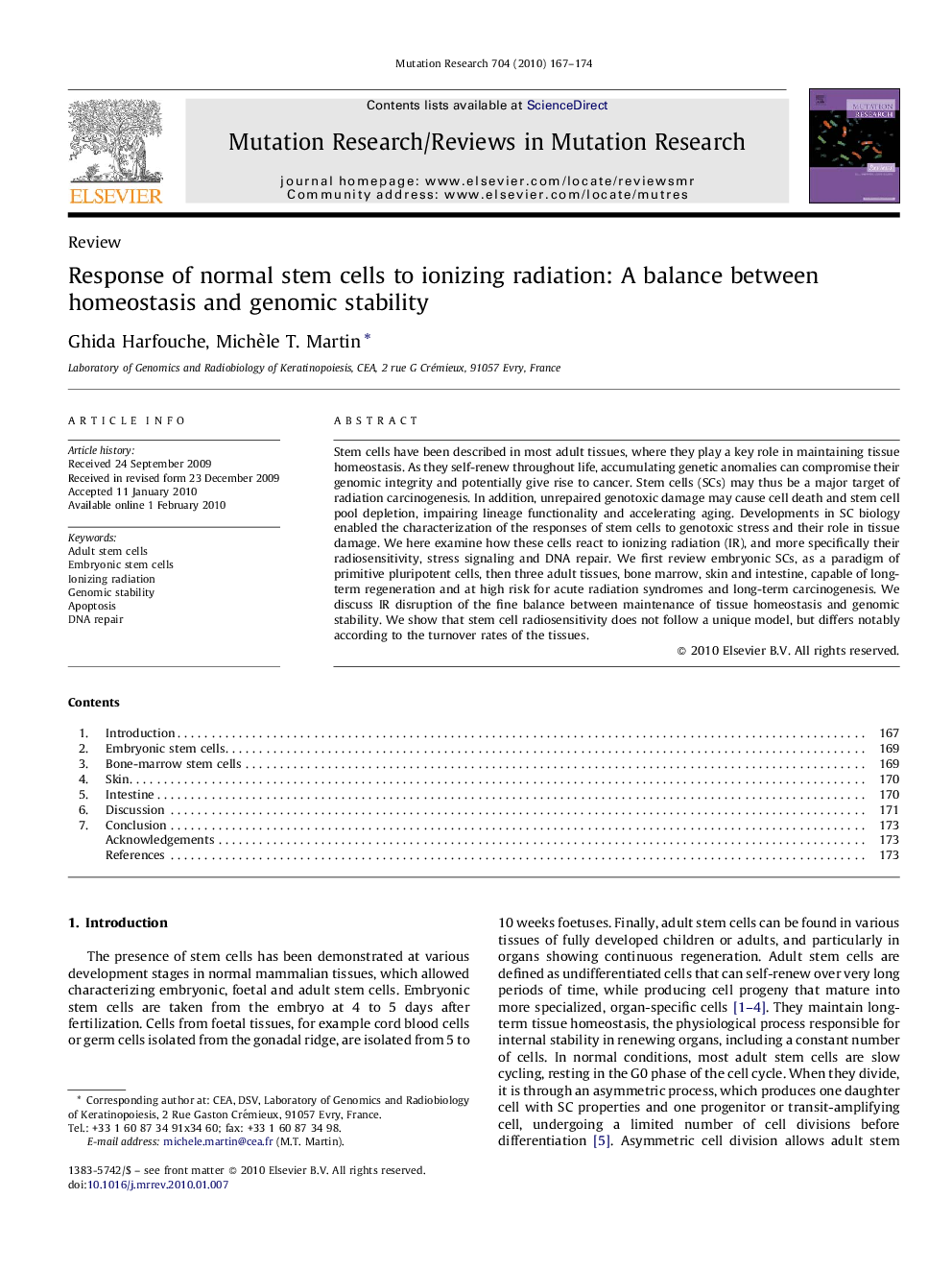| Article ID | Journal | Published Year | Pages | File Type |
|---|---|---|---|---|
| 2149674 | Mutation Research/Reviews in Mutation Research | 2010 | 8 Pages |
Stem cells have been described in most adult tissues, where they play a key role in maintaining tissue homeostasis. As they self-renew throughout life, accumulating genetic anomalies can compromise their genomic integrity and potentially give rise to cancer. Stem cells (SCs) may thus be a major target of radiation carcinogenesis. In addition, unrepaired genotoxic damage may cause cell death and stem cell pool depletion, impairing lineage functionality and accelerating aging. Developments in SC biology enabled the characterization of the responses of stem cells to genotoxic stress and their role in tissue damage. We here examine how these cells react to ionizing radiation (IR), and more specifically their radiosensitivity, stress signaling and DNA repair. We first review embryonic SCs, as a paradigm of primitive pluripotent cells, then three adult tissues, bone marrow, skin and intestine, capable of long-term regeneration and at high risk for acute radiation syndromes and long-term carcinogenesis. We discuss IR disruption of the fine balance between maintenance of tissue homeostasis and genomic stability. We show that stem cell radiosensitivity does not follow a unique model, but differs notably according to the turnover rates of the tissues.
